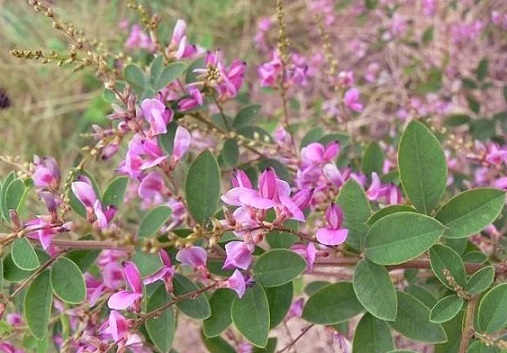Nikhil Prasad Fact checked by:Thailand Medical News Team Nov 28, 2024 1 year, 2 months, 3 weeks, 4 days, 21 hours, 8 minutes ago
Herbs And Phytochemicals: Researchers from the Forest Bioresources Department at Baekdudaegan National Arboretum and Gyeongsang National University in South Korea, have discovered promising antiviral properties in the roots of Lespedeza bicolor. The team identified flavonoid compounds capable of inhibiting a critical enzyme, the papain-like protease (PLpro), essential for the replication of SARS-CoV. This enzyme not only supports viral replication but also weakens the host's immune defense, making it an attractive target for drug development.
 Phytochemicals from Roots of Lespedeza bicolor Show Promise Against SARS-CoV-2
Phytochemicals from Roots of Lespedeza bicolor Show Promise Against SARS-CoV-2
This
Herbs And Phytochemical news report explores findings where nine flavonoid compounds were extracted from the root bark of L. bicolor. These compounds demonstrated significant inhibitory activity against the PLpro enzyme, suggesting potential therapeutic applications against SARS-CoV infections.
Understanding PLpro and Its Role
SARS-CoV's PLpro enzyme is indispensable for viral replication and host immune suppression. It helps the virus multiply by breaking down polyproteins into smaller components necessary for replication. Moreover, PLpro interferes with the immune system by disrupting ubiquitin and ISG15-mediated pathways. Despite its critical role, few natural inhibitors targeting PLpro have been identified.
In their study, the researchers isolated and tested the activity of compounds derived from L. bicolor. This plant, native to East Asia and North America, is traditionally used to treat skin conditions, vascular diseases, and infections. Its bioactive components, particularly flavonoids and pterocarpans, are known for their antimicrobial and antioxidative properties.
Key Findings of the Study
The study revealed several significant insights into the properties and effects of the isolated compounds:
-Flavonoid Identification: Nine compounds were extracted, including erythrabyssin II, lespebuergine G4, and bicolosin variants. These flavonoids exhibited a dose-dependent ability to inhibit PLpro, with inhibition constants (Ki) ranging from 5.56 to 75.37 μM.
-Inhibition Mode: All inhibitors worked through a noncompetitive mechanism. This means they bind to the enzyme at a site other than the active site, altering the enzyme's structure and hindering its function without directly blocking the active site.
-Structure-Activity Relationship: The study found that certain structural features enhanced or reduced inhibitory activity. For example, methoxy groups on specific carbon positions boosted activity, while bulky geranyl groups diminished it. The compound bicolosin C showed the highest potency with a Ki of 9.06 μM.
-Kinetic Analysis: Using techniques such as Lineweaver- Burk and Dixon plots, researchers confirmed that the
inhibition reduced the maximum enzyme activity (Vmax) without affecting the substrate-binding affinity (Km). This reinforced the compounds' noncompetitive inhibition profile.
Potential Implications
The identification of natural inhibitors of PLpro from L. bicolor provides a foundation for further research into plant-based antiviral therapies. These flavonoids could serve as lead compounds for developing drugs to combat SARS-CoV and potentially other related viruses. The structure-activity insights gained from this study will guide the modification and optimization of these compounds for increased efficacy.
Future Directions and Conclusions
The study highlights the untapped potential of natural products in combating viral infections. Given the critical role of PLpro in SARS-CoV replication and immune evasion, targeting this enzyme could lead to significant therapeutic advancements. The researchers emphasize the importance of exploring other members of the Leguminosae family, as they may harbor additional bioactive compounds with similar or superior properties.
The findings underscore the need for interdisciplinary collaboration to translate these preliminary discoveries into clinical applications. The study sets the stage for further exploration of plant-based compounds as a source of innovative antiviral agents.
The study findings were published in the peer-reviewed journal: Plants.
https://www.mdpi.com/2223-7747/13/23/3319
For the latest on
Herbs And Phytochemicals, keep on logging to Thailand Medical News.
Read Also:
https://www.thailandmedical.news/news/italian-study-finds-that-aged-garlic-extract-reduces-inflammatory-genes-induced-by-covid-19-infections-or-vaccines
https://www.thailandmedical.news/news/herbal-remedies-for-acute-lung-injury-hold-promise-for-safer-effective-treatment-options
https://www.thailandmedical.news/news/the-antiviral-power-of-lemon-balm
